Did you know that in the United States there are over 80,000 centenarians? Those are Americans who have made it to age 100 and beyond. They were born at a time when the life expectancy was just 53-1/2 for men and 56 for women. Today, life expectancy is 76 for men and 81 for women. So what is it like to be age 100 or older? And what can we learn from the men and women in this demographic? LA photographer Robert Duron is finding out.
Robert is in the midst of photographing 100 of the nation’s centenarians for California-based health plan SCAN, which is celebrating America’s 80,000 plus centenarians with a new digital portrait series called, “stages: 100 over 100.” Robert Duron has photographed famous athletes and musicians, models and even Ron and Nancy Reagan for the LA Chamber of Commerce. But “stages: 100 over 100” is nothing like his commercial work. Robert tells us how this project is different and what he’s learned from the centenarians. He shares his approach to the photo shoots and why “stages: 100 over 100” is a project he wishes he could focus on exclusively.
Explore the SCAN project: “stages: 100 over 100”
Robert Duron Website: Robert Duron Photography
Music: “Discovery” by Jon Luc Hefferman | CC BY NC | Free Music Archive
A few of the centenarians photographed by Robert Duron:
- Alta A. Regalado
- Marcelle Stephens
- Jeanette L. Ainsworth
- Idella Hollins
- Katherine Baumchen
- Jewel Owens
- Laverne (“Vern”) Olsen
- Winifred W. Carter
- Rosemary Demmon
- Maria Calderon
INTERVIEW TRANSCRIPT
JANA PANARITES (HOST) – Most of us are aware that Americans are now living longer than ever. But did you know that there are over 80,000 centenarians in the US today? Those are Americans who have made it to age 100 and beyond. They were born at a time when the life expectancy was just 53-1/2 for men, and 56 for women. Today, it’s 76 for men and 81 for women. So what is it like to be age 100 or older? And what can we learn from the men and women in this demographic? Well, a lot it turns out. California-based Health Plan SCAN is celebrating the nation’s 80,000 plus centenarians with a new digital portrait series called, “stages: 100 over 100.”
Each week SCAN is posting a portrait of one of its members who has reached their 100th birthday and beyond, along with a biographical essay. The photos have all been taken by LA photographer Robert Duron, who brings to the campaign a visual storytelling ability honed by over 25 years of worldwide photography. Robert’s been commissioned to create a presidential portrait of Ronald and Nancy Reagan for the LA Chamber of Commerce, he’s photographed famous athletes and musicians, and he’s actively worked with nonprofits and organizations including the ALS Association, for which he photographed a national print and PSA campaign that received two Telly Awards for PSA excellence. But today he joins us from Los Angeles to talk about photographing the centenarians for SCAN’s digital docuseries, “stages: 100 over 100.” Robert Duron, welcome to The Agewyz Podcast.
ROBERT DURON – Thank you. Thank you for having me.
JANA – As I understand it, the centenarians that you photographed are all SCAN Health Plan members who number over 300. I wonder if you could share how you became involved with this particular campaign?
ROBERT – Well, I’ve been working with SCAN for quite a while now. And we started actually photographing centenarians, probably three years ago, but it was for a different project. It was for an artist to create paintings from the photos that were actually taken. And then I just approached SCAN and said, This would be an amazing project. And three years later, here we are.
JANA – So you kind of shaped the current campaign out of the previous one. It sounds like you had a lot of input in terms of what you wanted it to be. What were your sort of combined goals for this campaign?
ROBERT – Well, starting out, it was basically, obviously we wanted to portray all these amazing people that have lived such incredible lives. And they all have amazing stories. And it blew me away that there was a couple of people that were still driving at the time… riding bikes, working in the yard, working on their house, climbing ladders… I’m like – wait a minute, I can barely do that now, at half their age. So you know, it just became a passion project for me. Just documenting these amazing lives excited me. Like, I have to do this.
JANA – So Robert, I wonder if you could take us through one of your photo shoots and your creative approach, if it differed in any way from some of your past shoots. I mean, you’ve shot swimsuit models, and musicians… and this is a really different set of folks.
ROBERT – It is. I think, the most amazing part of it is really – and how I approach, I don’t go in with any expectations of knowing what a photograph is going to turn into because everybody is so different. And you don’t know how they’re going to react – if they’re going to be open to it. And amazingly, everybody that I’ve photographed for this series has been completely open and actually really, really loved doing it. And they really love sharing their stories.
And that’s kind of how I approach it. I go in, and we just sit down and we talk. And sometimes we talk for over an hour, and then we photograph. And then other times we photograph first and then we’ll sit down and we’ll have a little conversation, and then we’ll maybe we’ll take a few more. And so it’s just kind of like getting to know people and sitting down, having coffee and of course birthday cake. And believe me, I’ve had a lot of birthday cake already. [both laugh] Cause usually it’s a birthday celeb– well, all of them are basically birthday celebrations, so I’m gaining a few pounds.
JANA – Oh boy. So did you photograph them… it looks like you photographed them in both a formal studio setting and at the birthday parties. Right?
ROBERT – We set up a little studio in everybody’s house.
JANA – Oh, I see.
ROBERT – Yeah, we set up on-location portrait setting. So they all have a consistent theme where the first time that I photographed the centenarians, it was kind of like in their environment. And for this project, I wanted to isolate them just with them, with no distractions. So I’m photographing everything on black, and just really trying to capture their story, their lives.
JANA – Could you share an anecdote?
ROBERT – Yeah, a couple pop out. I mean, a couple of people that just blew me away was – there was this member called Alta. For her party she danced with everybody, including me. Everybody in the room. There was probably a good 20 people, and she just made the rounds. And she was so active. And she’s actually one of our, not poster childs, but she was actually… up on the seventh floor there’s a big poster of her in her folklorio dance outfit that she goes to, I believe it was every Thursday. So she’s still active, dancing. And it just blew me away. I’m like – she was a much better dancer than me, too.
JANA – Well, she’s been doing it a little longer.
ROBERT – Yeah. But that was just amazing. And then there was an amazing story from this member Vern. He was telling me about World War Two, and he was a boxer in the Navy and he was telling me about his boxing days and how he would scrap in bars. So everybody has their own story. You know, we talk and we talk and we dig things up that a lot of people don’t even know about.
One of my questions for them is, tell me a secret that nobody knows about. And for the most part they say, No, I’m an open book. Everybody knows everything about me. And then we dig and dig and dig, and – for instance, this one lady, her name is Jewel. She said No, I don’t know. Everybody knows everything about me. And I asked her, where did you get your name Jewel, by the way? And she said, Oh, my dad named me. He saw it on the side of a delivery truck: Jewel’s Shortening. And everybody in the room was like, What? We had no idea. So these little secrets kind of come out.
JANA – I saw a video of a gal named Katherine Baumchen… 104? She got to California by way of Toronto. Is she living independently?
ROBERT – Katherine, I believe has family. But you know the crazy thing is, she was going on a road trip with I believe her cousins or maybe it was nephew? With her family. They were going up to Washington. But it’s just active. She’s just, Oh yeah, I don’t stay still. And that’s the thing about most of the centenarians that I photographed, is – they just don’t stop. You just don’t stop. You just keep going.
JANA – Yeah, that’s a great way to live.
ROBERT- It really is. And that’s what kept them going. You just- once you stop, it seems like okay, then you’re done. That’s the secret. Just keep moving.
JANA – You alluded earlier to a certain openness amongst these folks you photographed. I wondered if there were other qualities that you saw in them, as subjects, that you don’t typically see.
ROBERT – I think they wanted to share their story more than other people. Where other people are a little bit more closed off, a little bit more private. Whereas I think for the most part, these folks are very open and very, “whatever you want to know. Just ask me.”
Yet, they’re very, very humble too. They really enjoy talking to people. When I’m photographing, for whatever commercial project, it’s like – get the job done, we have a schedule to keep. For this project, you’re just visiting your friends. You’re just conversing with people, and they’re telling you their life story, there’s no rush, and you can stay as long as you’d like. And then it’s then it’s like, All right I’m tired, get the hell out. [both laugh] I’ve gotten that a couple of times.
JANA – Yeah, I’ll bet. And you know what? We listen, when they say things like that. The reality is, is that people don’t really pay attention to older folks. So I would imagine that the centenarians were happy to get the kind of attention you were showering on them.
ROBERT – They really are. And it amazes me that people don’t bombard them and they’re not always getting interviewed, or people just want to talk to them about their lives.
JANA – I want to know about your family, and what you’ve learned from the older adults in your own family… and what memories you have growing up, of the older folks in your life.
ROBERT – I remember both of my grandmothers. Both of my grandfathers had passed away by the time that I was born. And I think it was typical, go to grandma’s house on Sunday. That type of thing. And my grandmother on my father’s side actually lived to 96. And she would go to church every Sunday, she would work in the yard every day, so she was very active all the way. I wish I would have photographed them. I’m not sure if I had a camera then but…
JANA – How do you think about your own older age? And did the campaign change how you think about older age?
ROBERT – It absolutely does. It’s amazing to see these people and how they’re, I would say most of them are fully functional. And a lot of them are on their own. They have caregivers that come in, but they do spend quite a bit of time on their own. And yeah, it makes me appreciate, I guess my age a little bit more. And I’m at the halfway point right now if I were to be a centenarian, so it’s inspiring, it really is inspiring. I still have another half.
JANA – Right. Are they providing you with tips and secrets other than keep moving?
ROBERT – You know what? It’s funny, the majority of them are – there’s a few that have… they’ll tell you – I mean, after speaking with them for a while, they’ll tell you stories of past loved ones that have passed on and children that have passed on and, and you get their sense of sadness there. But for the most part, they’re very, very happy.
JANA – One of them was quoted as saying, I attribute my long life to my faith in God, but my daughter also says I was never angry.
ROBERT – Yeah, I could see that. There was a few that had a couple of regrets. I try and get those questions in, too. You know, do you regret anything? And for the most part, they’re like, No, no, I don’t regret… well, I regret drinking. I got in a couple of scuffs. For the most part, none of them really smoked or drank. But that being said, many of them were not on any special diets. They say they ate what they want.
Usually it’s more healthy than not, but these are people that are just happy in their own skin. Of course, some of ’em, I’ll take photos and then I’ll show them, and I remember… who was it? Oh, I forget who said it, but she said, Well, that’s me. What are you going to do? And I said, This is gorgeous. Are you kidding? And she goes, Oh, I look like a line map.
JANA – Are your folks still alive?
ROBERT – No, no, they both passed on over 10 years now.
JANA – Oh, wow. I’m sorry to hear that. Do you have older people in your life, outside of the centenarians, that you’re close to?
ROBERT – I have friends that are older, that, for the most part – I’m an old guy, so…
JANA – Come on. Like, you’re in your early 50s, I’m guessing, right?
ROBERT – Yeah.
JANA – Is that old?
ROBERT – I wouldn’t say that’s old, but I would say that some of my older friends, I would say Well, yeah, I guess they’re older, but they’re about my age.
JANA – I know. When you get to a certain point, it’s like, Yeah, I’m not that young anymore. Getting back to the campaign… is this your primary focus right now?
ROBERT – Aside from running the studio, and still having a lot of my commercial clients, this is my passion project that, if I had my way, I would just work on this exclusively. The business is annoying right now.
JANA – Well, I’ll bet it puts it in a different perspective.
ROBERT – It really does. It really does. I would definitely love to just do this project.
JANA – Do you know anything – or I should say, What do you know about these people before you photograph them?
ROBERT – I go in not really knowing anything about them. So I go in pretty cold. And I just want to hear their story, firsthand.
JANA – Any surprises?
ROBERT – That’s a good question. I think I get surprised just about every time that I go out. It funny, there’s a couple of people that will just be prim and proper, and then a half hour into the interview the expletives come out… if we start with politics. So we try not to enter that. They get a little heated. And they have no problem expressing their feelings about it.
JANA – Unfiltered. That’s what happens when you get older. And it’s almost like an entitlement.
ROBERT – Yeah. Absolutely.
JANA – Well, Robert, I don’t want to take up too much more of your time, I just want to know if there’s anything that you want to talk about with regard to this project that we didn’t really talk about.
ROBERT – I think we covered just about everything. I mean, I’ve just feel like we’re just scratching the surface of this project. I guess we’ve photographed about 20 so far. So we have a ways to go, and it evolves as it goes on. It is such an amazing project. Like I said, I would just like to work on this project alone.
JANA – I don’t blame you. I don’t want to paint a rose-colored picture, because obviously everybody can be difficult at any age, but for me there’s something really comforting about being around older people. For me, there’s just like so much uncertainty in the world and these people have survived and lived through so much.
ROBERT – They have. And you know what it is, too, is you get so much love from them. It’s really, really amazing, that they’re so open. Just yesterday, I was photographing, I believe it was Mary, and she was just holding my hand and just smiling and she wouldn’t let go. Just like, laughing, and you could just feel the love pouring out. And that goes for just about everybody that I photograph. You could tell she had just gotten out of the hospital.
ROBERT – And you could tell that she was still in pain. She had stomach problems. And then it was to the point where I was, Well, should we do this? We don’t have to do this today. And she wanted to do it so badly. And she wanted to have her party in front of all her friends. And there was at least 30 people there. It was at a senior center. And then we did her portrait session and she just came alive and she put everything aside. And you know, I bet that’s how she had led her life. Just put others before yourself.
JANA – That is such an interesting point. Because when you think about it, that generation and even the generation before them slightly, are so ground in the notion of sacrifice and modesty and humility, that for people to pay attention to them, is just such a unique experience.
ROBERT – There is no entitlement at all.
JANA – What a concept.
ROBERT – I know, right?
JANA – And being around people who are that loving is just so intoxicating, right?
ROBERT – It really is.
JANA – That never gets old.
ROBERT – It really doesn’t. I mean they are just so open and so trusting. It’s amazing.
JANA – We’ve been speaking with LA photographer Robert Duron, the photographer behind the new digital portrait series called, “stages: 100 over 100,” a campaign celebrating the nation’s 80,000 plus centenarians, and it’s sponsored by California-based Health Plan SCAN.
We’ll have a link on the Agewyz website to the series, where you can learn more about it, and we’ll also provide a link to Robert’s work so you can explore his truly amazing work. Robert, thanks so much for being on the show. And thanks for your passionate involvement with this project, and I can’t wait to see all 100.
ROBERT – Thank you. Thank you for your time today.




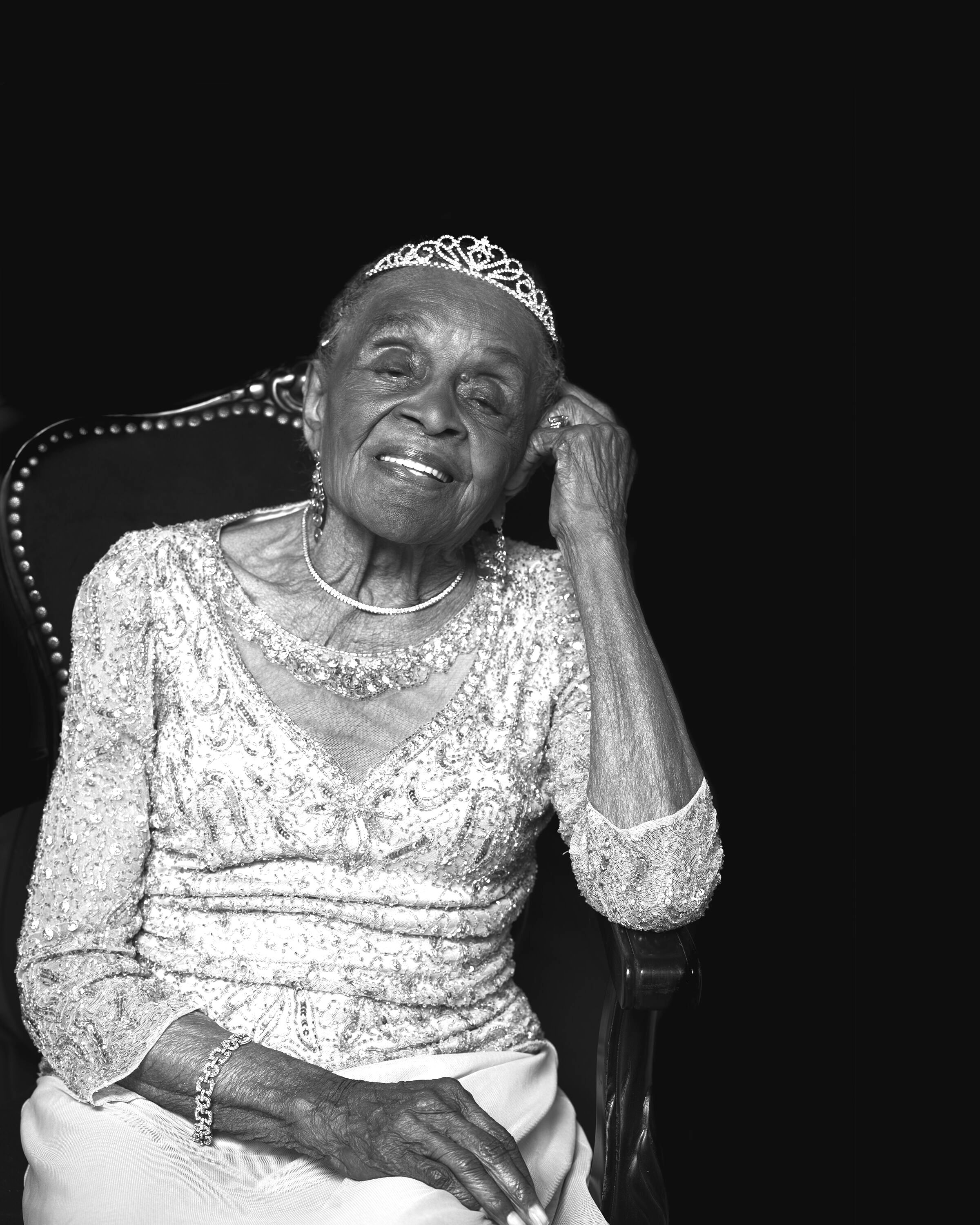


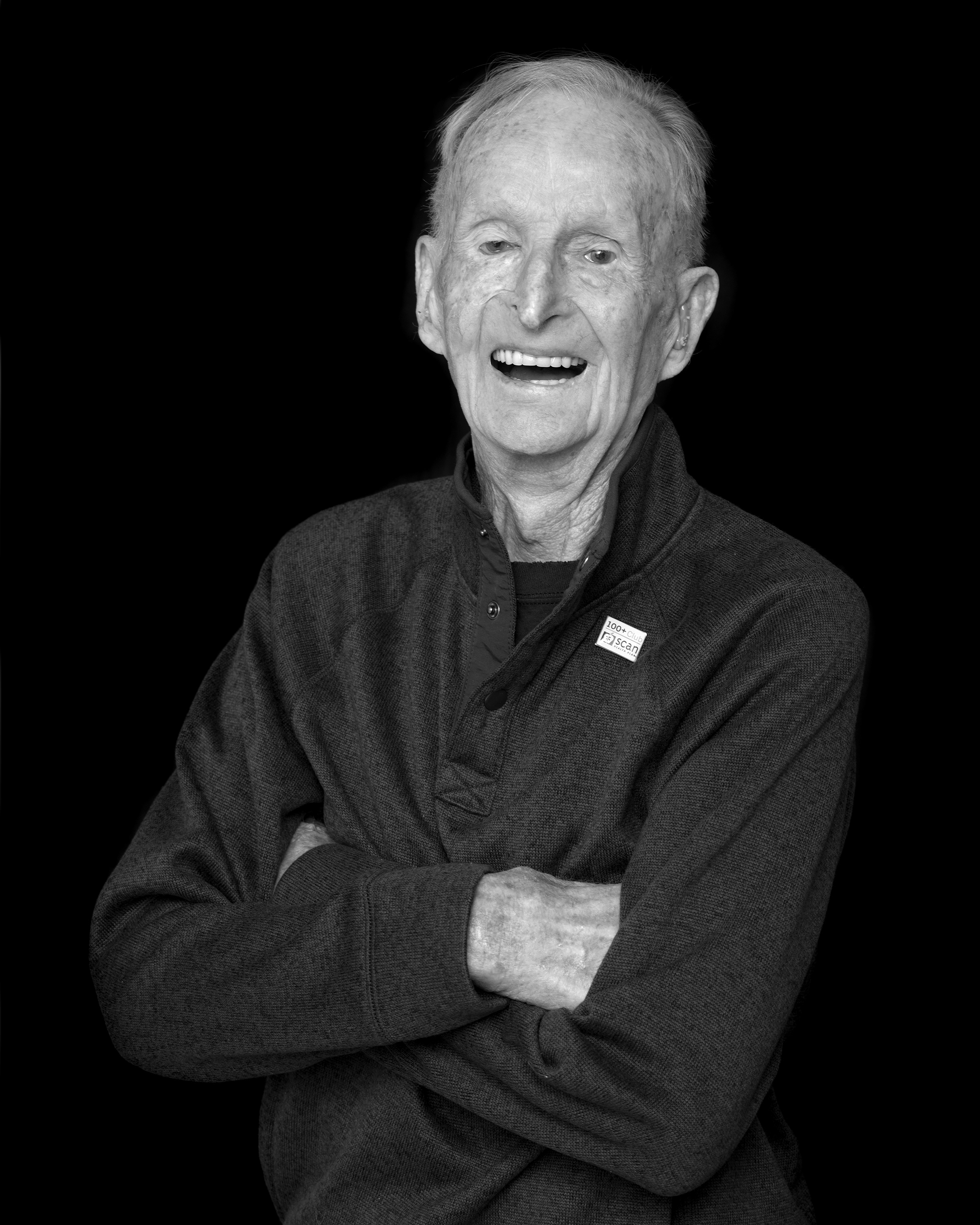
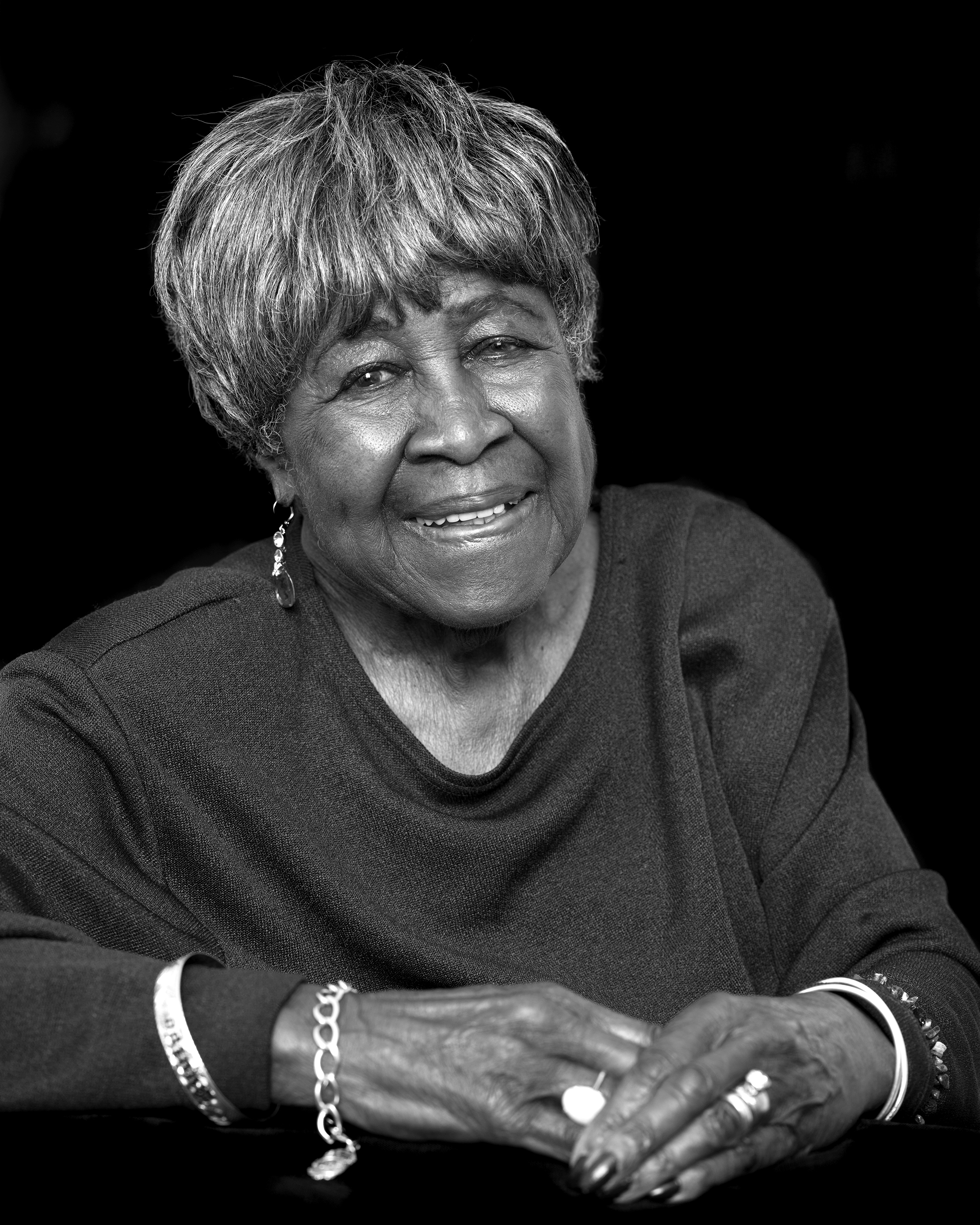
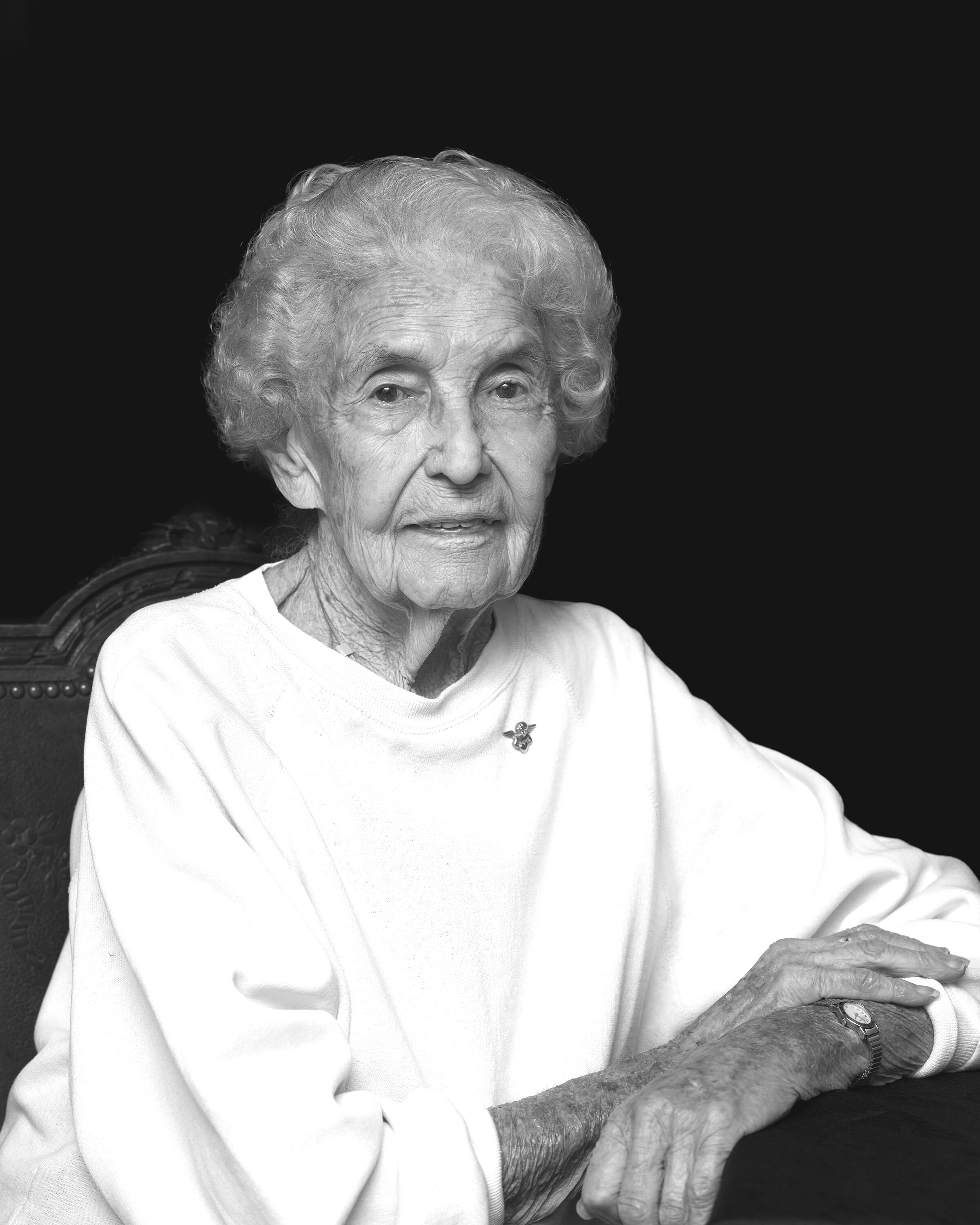
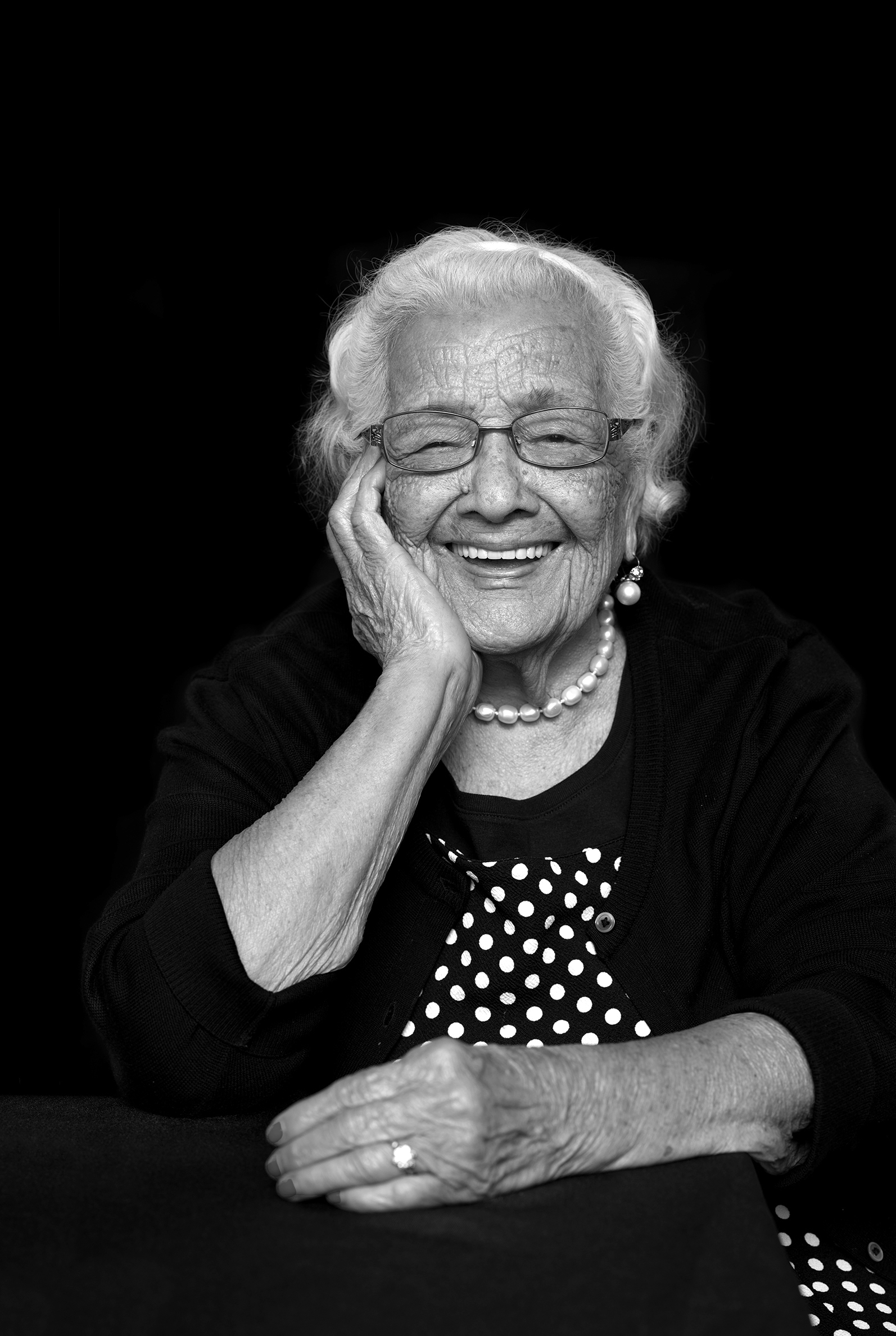
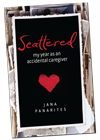 Scattered: My Year As An Accidental Caregiver is available in paperback and eBook at
Scattered: My Year As An Accidental Caregiver is available in paperback and eBook at



